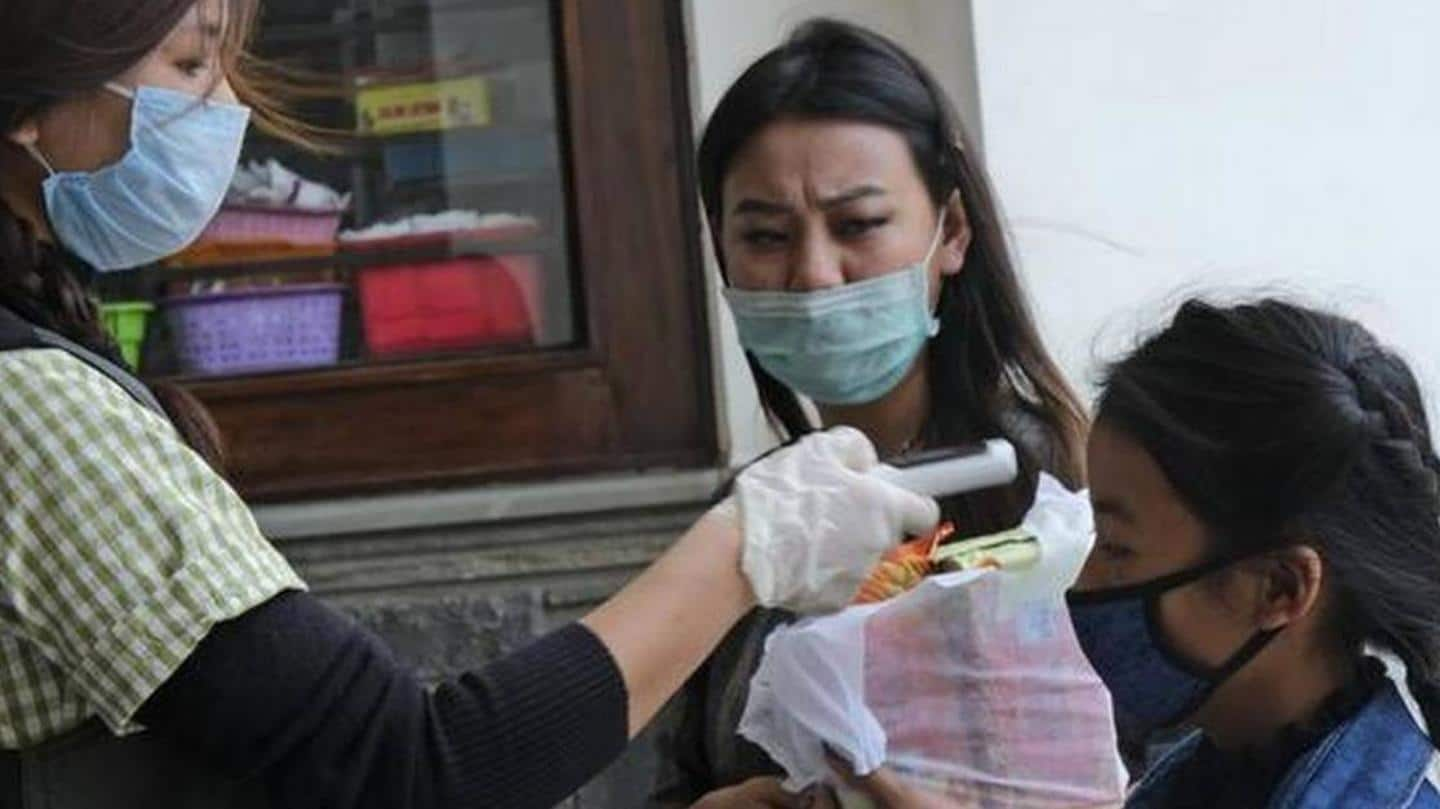
How local communities in the Northeast are helping fight COVID-19
What's the story
While the major hotspots of Delhi and Mumbai are starting to control the spread of the coronavirus, the outbreak has been getting worse in the Northeastern states.
However, local communities in Nagaland and other neighboring states have taken up arms against the virus, operating quarantine facilities, forming their own task forces, and devising their own standard operating procedures.
Here are more details.
Details
Quarantine centers established in Nagaland's Kohima
In Nagaland's capital Kohima, the local community has set up quarantine centers in 10 of the city's 19 wards.
Kohima Municipal Council Chairman Kovi Meyase told The Print that such facilities are being maintained by the communities with little help from the government.
Meyase said, "It is the community, which has arranged the wherewithal for these facilities, whether it be in cash or kind."
Quarantine
Government school converted into quarantine center in Upper Chandmari colony
Upper Chandmari colony houses one of the 10 quarantine facilities in Kohima. This facility—established at a government school—has reportedly received 13 returnees since June and currently accommodates five returnees.
Ward chairman Ketholilie Keditsu constituted a 13-member COVID-19 Action Committee-cum-Task Force.
The task force, which mainly comprises youth volunteers, has been tasked with registering the returnees and managing the community quarantine centers.
Quote
'Colony youths, elders prepare food for quarantined persons'
"All the returnees who come here from the government quarantine facilities are received by our youths and the COVID-19 action committee," Keditsu told The Print, "The colony youths and elders even prepare food for all of them."
Quarantine
Volunteers wear black vests, carry walkie talkies
The task force volunteers reportedly wear black vests, similar to the ones worn by armed forces, and carry walkie-talkies.
Thejasezo Mor, secretary of the task force, explained, "We don't follow any rota as such because it's a community-based facility, so whoever is free will come and work in the kitchen and do other chores as well."
Quote
Community groups help fight COVID-19, but friction remains
Kohima Chief Medical Officer Dr. Vezokholu Theyo said, "As days go by, (the communities) have come to know what COVID is. And they're giving awareness to the colony people. It has been of great help," adding that sometimes, there's incongruence between their policies and those of the community groups.
Dimapur Chief Medical Officer Dr. Tiasunep Pongener also said these communities have posed a hindrance.
Dimapur
Community task forces unwilling to take cancer patients: Pongener
Dimapur, which shares a porous border with Assam, has the only airport and railway station in Nagaland.
Dr. Pongener said the community helps by catching those who enter through the border that may go unnoticed by authorities.
However, the community is unwilling to take special category returnees including cancer patients for home quarantine, so they have to be kept in institutional quarantine, he said.
Across Northeast
Locals step up across Northeast
In Manipur and Mizoram, local traditions have come in handy with social distancing protocols; such as depositing money in boxes/jars at shops when picking up any item.
In Meghalaya, too, community COVID management teams have been formed, which also include government representatives.
Over 7,000 such committees have been set up in the 6,000 villages and three urban areas of Meghalaya, including Shillong.
Quote
Community groups monitor those in home quarantine: Official
Ram Kumar, Joint Secretary of Health and Family Welfare and National Health Mission Director, Meghalaya, told The Print, "They monitor those in home quarantine. They take care of the people in the community quarantine centers. So through this, we could prevent a lot of spread."